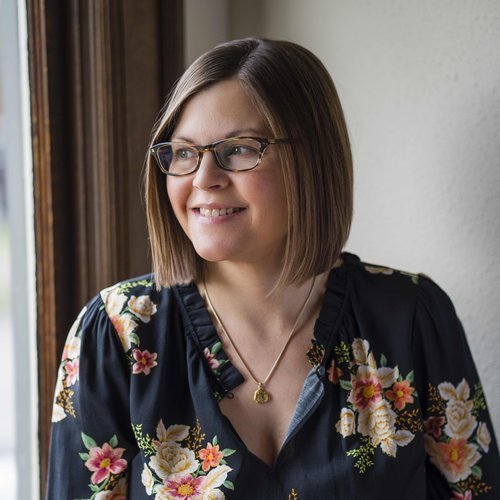Karen Thompson Walker
interview by Sophie Trist
photo © Dan Hawk Photography
What inspires you to write fiction? Tell us about how this journey began for you.
I think there's something a little mysterious about writing. I love reading and the possibilities of language and story. Getting to work with words is my passion, and I love writing the kind of books I'd like to read.
In both of your novels, The Age of Miracles and The Dreamers, ordinary people's lives are upended by a fantastical event. Yet despite the speculative nature of your work, both novels remain grounded in both the real world and the characters' humanity. Where did these fantastic elements come from, and how do you balance reality and fantasy in your writing?
I really enjoy spending time as a writer and a reader and just as a human being in those spaces between the ordinary and the extraordinary, the everyday and the unlikely. Even in our everyday reality, I enjoy that. I love reading about realms of science where there's still a lot of mystery: quantum physics and distant planets. Once you start reading about these elements of reality that we don't totally understand, it opens up that imaginative space that a lot of people love to spend time in. My second book explores the inherent weirdness of sleep and dreams, which, if they weren't part of our reality, would seem fantastical. By pushing the speculative element, my writing can shine an interesting light back onto our real reality. I love these fantastic premises, but my real interest is excavating human relationships and real experiences.
You did an excellent interview with Jezebel on parallels between the Covid-19 pandemic and the world of your second novel, The Dreamers. Two years on, how is the pandemic affecting your writing now?
Writing The Dreamers two years before the pandemic was an eerie feeling, seeing some of the things I wrote about become reality. There have been so many phases of the pandemic that it's affected me in many different ways, as it has all of us. Following science has been an enjoyable intellectual experience, but the large-scale disruption slowed down my productivity as a writer for a while. Later on, having an artistic pursuit proved beneficial because I could take refuge in my writing and my imagination. It's hard to say exactly how the pandemic will influence what I write in the future, but it's hard to imagine it not having an impact.
Tell us a little about your writing process. How do you prefer to conduct research?
My ideal writing routine is to make it a daily habit, although between my teaching job and two young children, this isn't always possible. I can't write for too long at a stretch, so an hour is about ideal for me. My research process isn't super direct, more intuitive. I just read any book or article that has anything to do with sleep or dreams, disease, or whatever I happen to be writing about or interested in at the time. A lot of nonfiction reading is crucial for me.
Who are some of your favorite writers? What literary works influence or inspire you, and why?
Jose Saramago, and especially his novel Blindness, really set me on the path to writing speculative fiction. I love Julie Otsuka’s work, The Buddha in the Attic and When the Emperor Was Divine. I just recently read and became obsessed with When We Cease to Understand the World by Benjamín Labatut, translated by Adrian Nathan West.
What are some elements of craft that you look for in good writing?
My immediate number one thing is an attention to language. That doesn't mean it has to be what we think of poetic or flowery, but just a sense that the words have been chosen carefully, with attention to the sound of the language. I look for a strong voice, the sense that a specific writer is telling this story. I like a feeling of uniqueness, a sense that this story could only be told by one person.
If you could give emerging writers one piece of advice, what would that be?
Read as much as you can. Learn as much as you can from the books that you love. Patience and perseverance are important for every artist. Every project is a long process, and becoming a writer is a long process.
The Arkansas International is thrilled to have Karen Thompson Walker as our guest judge for the 2022 Emerging Writers Prize in fiction. Walker is the author of The Age of Miracles (2012) and The Dreamers (2019). She worked as an editor for Simon & Schuster and now teaches in the creative writing department at the University of Oregon.


